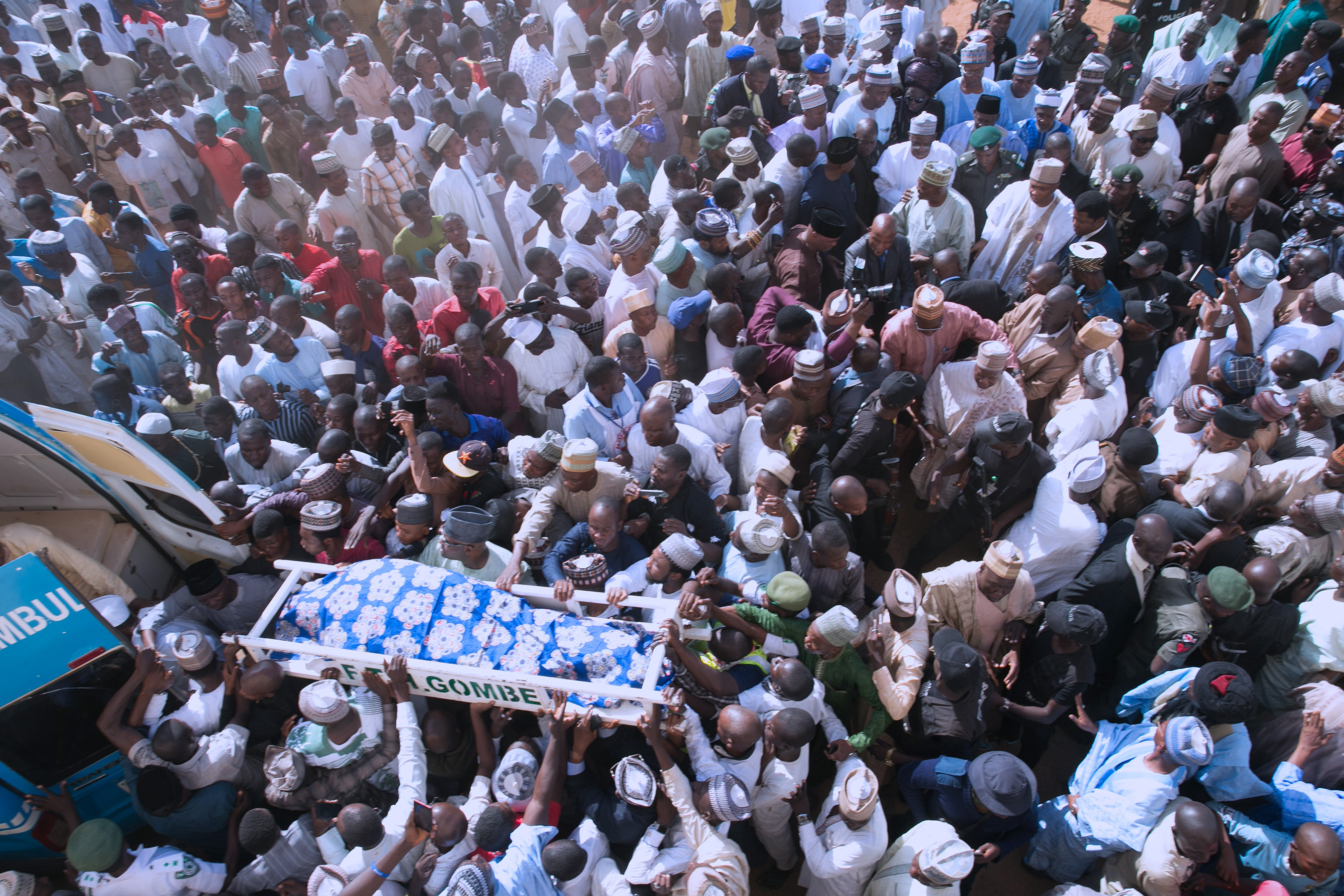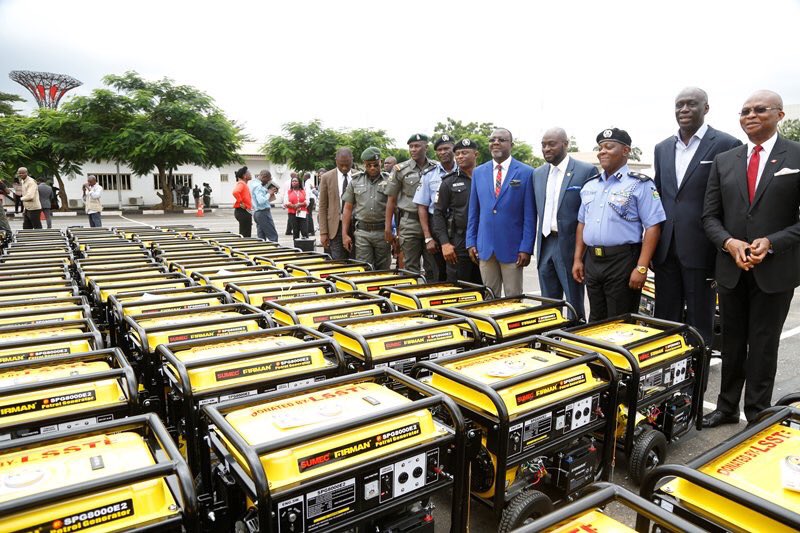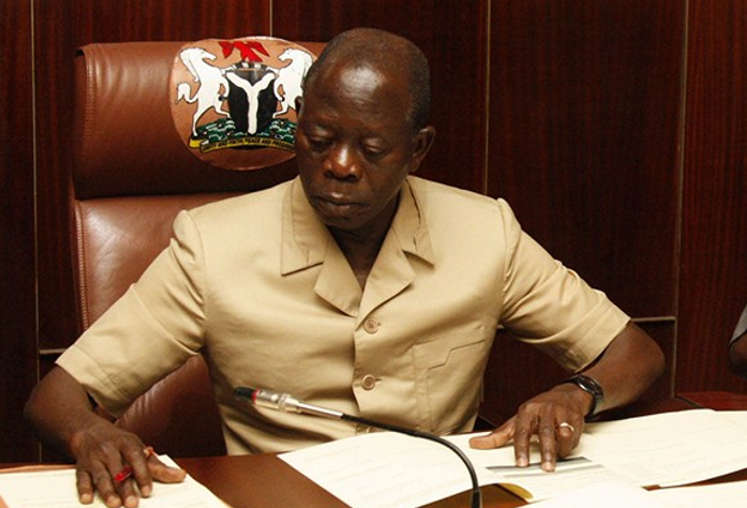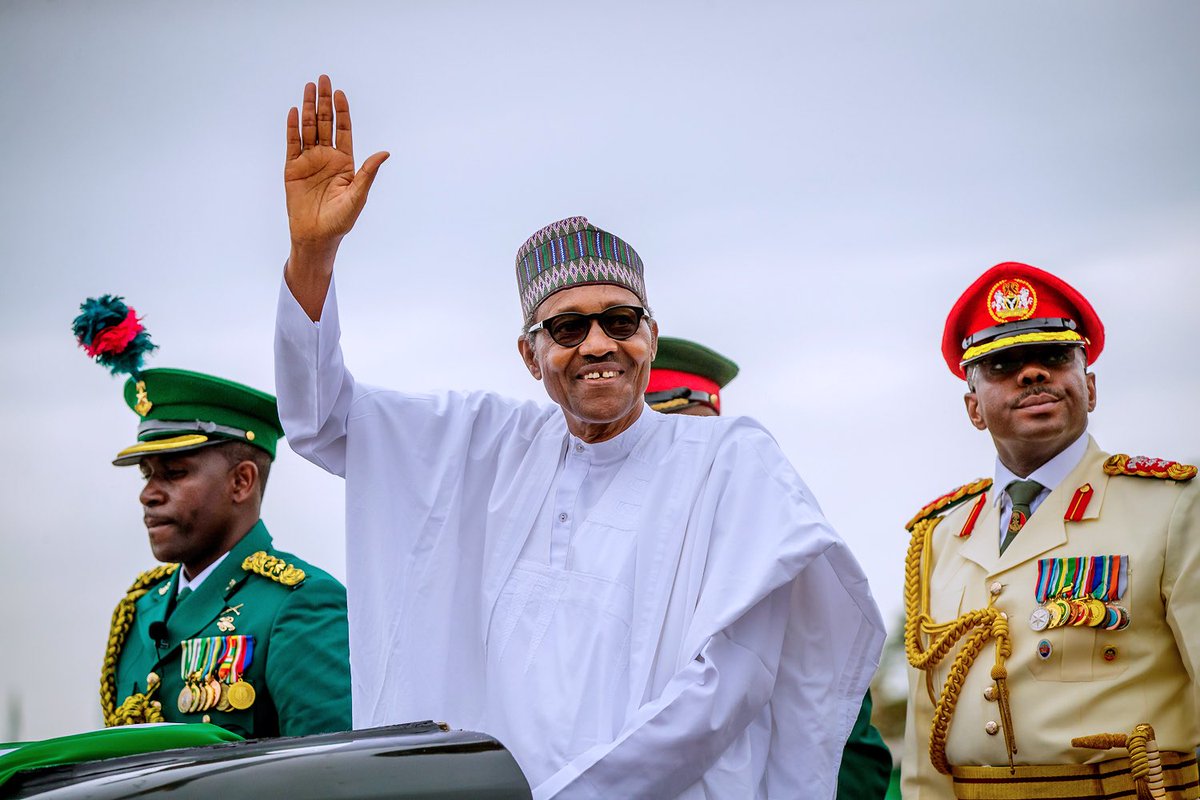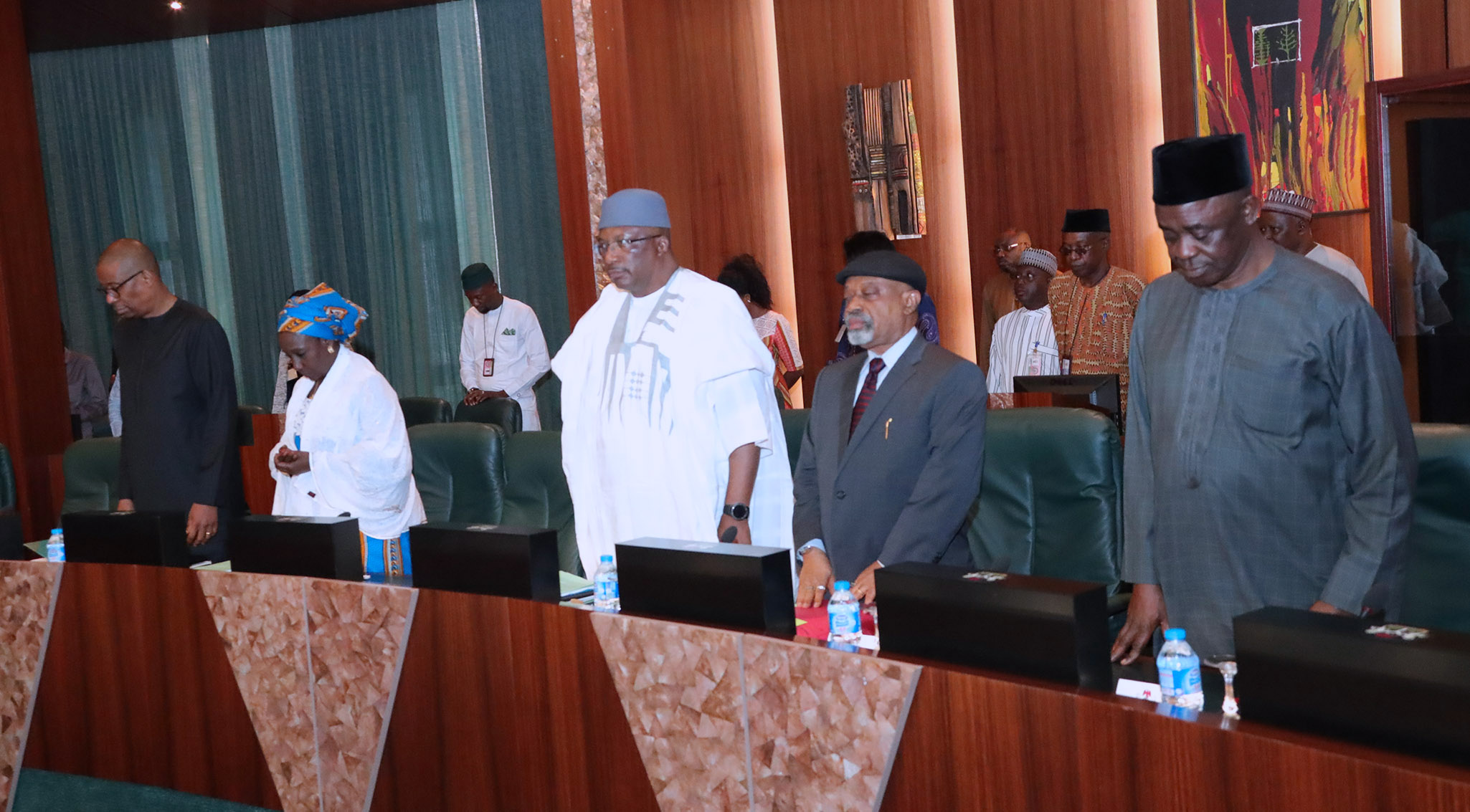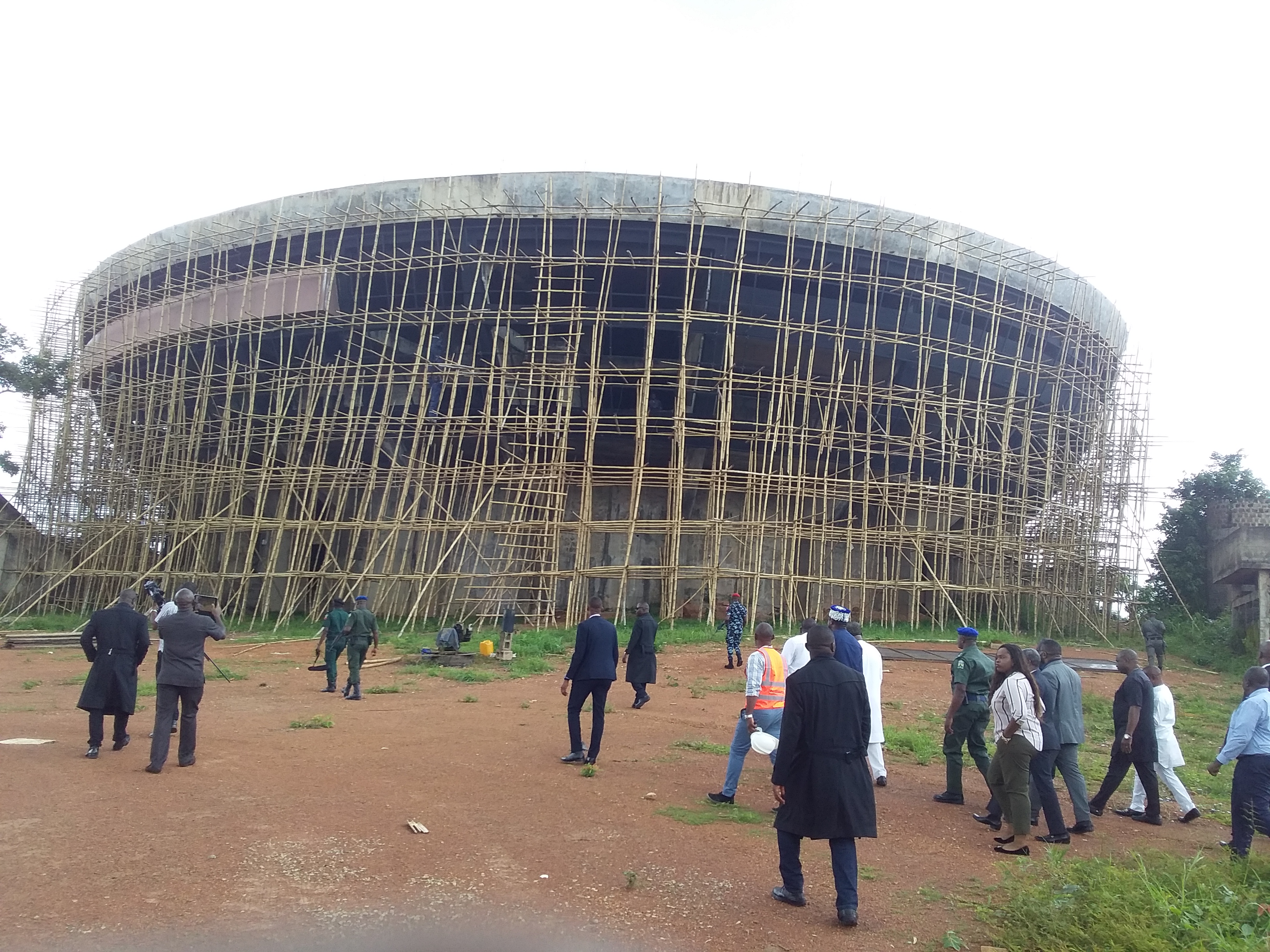FGN DELEGATION TO BURIAL OF SEN DANJUMA GOJE'S WIFE. 5A&B. The Remind of Hajiya Yelwa Danjuma Goje with Sea of Crown during burial of wife of former Gombe State Governor Senator Danjuma Goje, Late Hajiya Yelwa Danjuma Goje in Goombe State. PHOTO SUNDAY AGHAEZE/ STATE HOUSE NOV 9 2017
Tragedy struck when he was assassinated mid-life in 1987. However, the 43 years life of Jamaican reggae music star, Peter McIntosh, otherwise known as Peter Tosh, put a considerable weight on existence over and above metaphysics. No, this is not an avenue to venerate the poetry in Tosh’s songs, his philosophy of equality of skin pigmentation and equal rights for all races, as well as his unrepentant Black-centrism. His belief that immediately a man transmits mortality for immortality, humanity should bother less about his perishable remains is what I am engaged with in this piece.
Tosh demonstrated this in Burial, a very scathing track contained in the album entitled Legalise It. Therein, Tosh reserved unkind words for those who place premium on the existence and comfort of the dead above that of the living. Waxing lyrical and very diffident in his Jamaican patois, he had denigrated those who “want I come a dem burial” which “I-man no go,” asking them to “let the dead bury the dead and who is to be fed, be fed” as “I don’t have no time to waste on the dead” because “I am a living man, I’ve got work to do.”
In spite of his craving for Africa, Tosh in that track was very un-African. The unfortunate social equation that has become a poster of African existence is that Black Africans bury their dead at the expense of the living. They devote huge sums of money and considerable time to providing ‘comfort’ for the dead in their sepulchers while the living groan in lack and want. That is why you could have the banal equation of parents who haven’t paid their ward’s school fees borrowing huge sums of money to “pay last respect” to a departing parents. This has ripple effects on governance, human relations and society in general.
The Bauchi State government flipped through this unsavoury page in Nigeria’s social existence recently. By that, it provoked discourses on implications of governmental fascination with the dead above the living, as well as many other social issues. Speaking through his spokesperson, Dr. Ladan Salihu, the state governor, Bala Mohammed, alleged that his predecessor, Mohammed Abubakar, within five months – between January and May, 2019 – spent N2.3 billion in procurement of materials for burying the dead. Broken into specifics, Mohammed alleged that N900 million of the said expenditure was voted for buying white cloth materials used for wrapping dead bodies while over N1.4 billion was expended on buying woods for lacing graves preparatory to burials. However, while rebutting this claim, Abubakar’s aide, Muktar Jibril, claimed that his boss expended just (emphasis mine) N1.27 billion on corpses and inherited the practice from his predecessors.
Advertisement
Unknown to Salihu and his principal, by this burial narrative, they had opened the vortex of many of the ills that plague this country as a pseudo nationhood. Again provoked is the issue of the attitude of Nigerian political leadership as a whole to public money entrusted in their care and why Nigeria is facing an abysmally stunted growth in decades of her forced togetherness. The first is that, Abubakar, by his own admission, had devoted the sum of N1.4 billion of Bauchi people’s money to burying commodities that maggots and termites will feast on for breakfast, lunch and dinner. The inanity of this venture can be seen in the converse cultural position among Indians who merely set alight their own remains. It has also opened new vista for people like us who had over the years given kudos to the Islamic religious practice of scant veneration of the dead as totally destroying all the needless attention that Christians give the dead. I remember watching the remains of President Umaru Yar’Adua being laid in a shallow, unmarked grave with mere bamboo woods as his consort. Abubakar has shown us that when the desire to gain personal advantage from the purse of the Nigerian state is at issue, there is no precept of religion that cannot be subjected to self-imposed casualty.
You may not understand the tragedy of this burial narrative until you examine the issues involved, to their brass-tacks. In November last year and while Mohammed was yet trifling with the personal pocket economics derivable from burials, Mr Bahnu Pathak, Chief Field Officer of the United Nation’s Children Fund (UNICEF), said that there were one million out-of-school children in this same Bauchi State. Pathak described this figure as worrisome. Earlier, UNICEF had announced that out of 1.2 million school-age children in Bauchi State, 777,000 were out of school. In June this year, UNICEF had announced that there were eight million out-of-school children in ten states of the North and that Bauchi picked what appeared a lion’s share of this frightening figure. You can imagine how many of this number would have been retrieved from the streets by Abubakar’s N1.4billion or Muhammed’s N2.3billion.
It will seem that the issue of we no dey born pikin trowey, though carelessly and banally put in perspective by Patience, wife of ex-President Goodluck Jonathan, had been over-flogged but its pervasive implications still remain with us. The Almajiri system in the North, nurtured by an ancient culture of scant regards for children and Oil Sheikh Wealth Wastage-like leadership disposition with collective wealth by leaders of the North, has come to haunt Nigeria as a collective. Children of those who did not born their pikin trowey – apologies to Mrs. Jonathan – are now being killed as soldiers sent to the wars which are originated and stoked by children whose parents born trowey. In the Almajiri system can be found the verdant seeds of Boko Haram insurgency, the banditry of Zamfara, the herdsmen killings in the North West and the pestilence of herders’ crisis in the West of Nigeria. When Obafemi Awolowo complained bitterly, seven decades ago, about the collective dangers posed by the acts of parents who born their own pikin trowey and its potential effects on parents who religiously tend their own children, no one saw the wise counsel therein. Now, the chickens are home to roost. It is further worsened by the fact that President Muhammadu Buhari is seemingly unbothered by the danger. As we were about clapping for him recently on his statement to the effect that the Stone Age system would be scrapped, he unleashed a bombshell – it is yet a proposal!
Advertisement
Flippant governor of Kaduna State, Nasir el-Rufai, though felt he was on a usual roller-coaster of an assumed knowledge and class arrogance, he put the issues in perspective. He had described Nigeria as two countries and that, while the south was developing, the north had remained backward. Whatever political end this was meant to achieve, the fact that the North under-develops the North, a la Walter Rodney, is very instructive here.
“In terms of human development indicators, Nigeria consists of two countries; there is a backward, less educated and unhealthy northern Nigeria and a developing, largely educated and healthy southern Nigeria. We have to speak the truth to ourselves and ask why is it that northern Nigeria has development indicators similar to Afghanistan, a country still at war? We have the largest number of poor people in the world, most of them in northern Nigeria. Nigeria also has the largest number of out-of-school children, virtually all of them in Northern Nigeria. Northern Nigeria has become the centre of drug abuse, gender violence, banditry, kidnapping and terrorism. We have also been associated with high divorce rate and breakdown of families. These are the challenges that confront us. This is the naked truth that we have to tell ourselves. We are generally considered to be more honest and less corrupt than other Nigerians. That is something we should be proud of. In addition, our demographic superiority gives us a very powerful tool to negotiate in politics,” he had said.
It was in the same Northern part of Nigeria where one of its, indeed the governor of the President’s state of Katsina, Aminu Masari, holds court that the governor, in 2016, distributed 3,000 coffins to mosques as his “dividends of democracy” in a state that was yet unable to pay civil servants’ salaries.
El-Rufai’s demographic superiority theory is reason why leaders of the North have over the decades fooled themselves by failing to rein in their destructive inheritance of the Almajiri system. Yoruba found out the worthlessness for individual and society that mass siring of children represents, long time ago. Their parents taught them via the dictum that siring mass children equals infectious poverty and lack, in omo bere, osi bere. President Buhari seems to be on same page with this ignorance and tomfoolery of northern leaders when he said, two days ago, that the fairness of the Nigerian constitution could be gleaned from the “temerity” of a three-Senator, 8-local government councils Bayelsa State being at par in same number of Senators with a Kaduna State with 44 local governments. Buhari’s wonky analysis of the strength of demographics reflects an inability to understand the imperishable wisdom in Yoruba elders’ saying in another dictum that ki eyin po lenu ko ni’yi, ko le gbe yangan l’agba, translated to mean that the value of the teeth isn’t its full 32 members but its ability to crush grains of maize.
Advertisement
The mass demographics theory of el-Rufai and its vicarious abetment by Buhari actually represent a curse to the North and which is rubbing off on Nigeria as a whole. Mass children leads to mass illiteracy, mass idiots and mass murders through terrorism. The mass local governments which Buhari seems to be gloating about is worthless, useless and a burden to Nigeria without commensurate economic indicator derivable from it. It is evident that the demographics lead to mass poverty. Bayelsa, with its sparse population, is more useful to national Gross Domestic Product (GDP) than the demographics of Kaduna. This is because it contributes more meaningfully to the Nigerian economy through the Federation Accounts. China has the largest population in the world and also has highest GDP. India, too. California today boasts of the world’s 5th largest economy, surpassing United Kingdom’s. It rose by $127 billion from 2016 to 2017, surpassing the $2.7 trillion mark. What Buhari and his demographic theorist do not know is that, population can be a curse if not creatively and sensibly harnessed.
The burden that Northern Nigeria is constituting to the social tomorrow of Nigeria via its leadership is a warning to leaders of Southern Nigeria who spend state patrimony on dross. Invest in education, agriculture, meaningful and gainful employments for your horde of educated Almajiris who flock out of universities yearly without jobs; otherwise, you will be having on your hands creative bombers and bandits who will soon turn the lives of your John Hopkins-trained children into lives of sorrow.
Makinde, open society and its enemies
Advertisement
About two weeks ago, the Governor of Oyo State, Engr. Seyi Makinde, shocked a Nigeria not used to the open society that democratic governance advocates. While the norm among holders of office in Nigeria is to dictate alleged details of their pre-office worth to their media handlers for the world to feast upon, Makinde went a notch higher by handing over a copy of his assets declaration form to the world through the press. By his own admittance, he was worth about N48 billion. Ever since, the ears of the world had tingled considerably.
One, this move was unlike a typical Nigerian public office holder’s. Second, in recent Nigerian history, apart from late President Umaru Yar’Adua, no Nigerian political office holder had made similar noble move. While we were still lifting our thumbs up to this new and against-method governor, Lorreta Onochie, Buhari’s aide, had unconscionably dragged the hallowed discourse to the level of joke that the Buhari government had taken this country by equating Makinde’s noble move with her principal’s. Buhari, it is on record, had promised to publicly declare his assets, with a promise to get his vice to do same. As we speak, not only has he swallowed his vomits, Nigerians only confront his so-called openness in the dream. There are allegations that his actual worth is in multiple of billions of Naira while that of his vice, who masquerades in the veneer of a man of God, is akin only to that of Candido Joao Da Rocha, one of Nigeria’s wealthiest entrepreneurs.
Advertisement
The All Progressives Congress (APC) was to further aggravate this apparent obtuse statement from the president’s aide. It said it doubted the claim that Makinde possesses such wealth and he should tell the party what he did to acquire the humongous wealth. On its surface, this charge sounded very logical and an apparent question to ask in the bid to speak truth to power. Its drawbacks can however be found in the fact that, at the click of a computer button, what Makinde did to acquire the said wealth can be discovered or much still, they can write a letter to America’s equivalent of Nigeria’s Corporate Affairs Commission (CAC) to help APC lift the veil on how the governor acquired the wealth. I thought that, at this juncture, we should applaud the governor for this show of openness and encourage Buhari, his Pasteur Vice and all other governors to do the same.
What I thought the APC ought to have brought out is the practice over the years where public office holders who fill assets forms declare modest worth but acquire multiple wealth in office. This, to me, would have made more sense than seeking to pollute the democratic score that Oyo State today boasts of by having the first governor in the history of Nigeria’s democratic practice to sincerely declare his assets.
Advertisement
Views expressed by contributors are strictly personal and not of TheCable.
Add a comment

